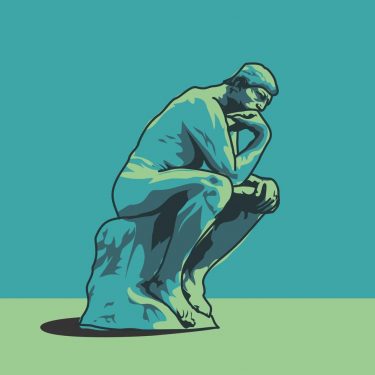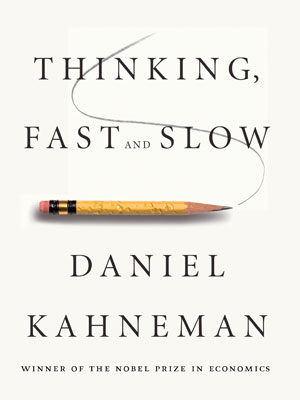 I have a super smart neighbor that’s now retired. After competing in the Olympics in track, he became a college professor as is the quintessential deep thinker. He dropped the following sentence at church recently, which gave me pause:
I have a super smart neighbor that’s now retired. After competing in the Olympics in track, he became a college professor as is the quintessential deep thinker. He dropped the following sentence at church recently, which gave me pause:
“Most humans don’t want the truth—they want to be told they’re okay.”
He’s got a point. I’m not sure if “most” humans don’t want the truth, but I know I lot of them would rather be told (or delude themselves) into thinking they’re okay. Granted, I think most humans are okay, but I think this line of thinking prevents us from progressing at times, myself included.
What do you think: Do humans value acceptance more than truth? And are the two mutually exclusive?
 Why are suckers born every minute? How can we explain “If it seems too good to be true, it probably is“? Why are humans encouraged to “think twice” before doing things? And why do we judge “books” by their covers?
Why are suckers born every minute? How can we explain “If it seems too good to be true, it probably is“? Why are humans encouraged to “think twice” before doing things? And why do we judge “books” by their covers?
The answers to those questions and many more can be found in Daniel Kahneman’s eye-opening book, Thinking Fast and Slow. It’s a fascinating, enlightening, and scientifically accessible read.
After decades of research, Kahneman discovered that the brain makes decisions in two ways. The first is system 1 thinking—the fast, almost involuntary, and largely gut-based decision-making required to operate. It quickly processes tasks like “eat this, pick up that, move out of the way,” and even, “stay alive.” System 1 makes hundreds, if not thousands, of decisions each day and is the “hero of the book,” says Kahneman. System 1 gets things done.
System 2, on the other hand, is slow to engage, deliberate, and lazy. It deals with doubt, uncertainty, statistics, and heavy cognitive loads like writing, performing surgery, solving advanced math—anything that requires intense focus, really. System 2 is not emotional. It’s the part of your brain that questions the source, asks for hard numbers to back up claims, and is innately critical. It deems things guilty until proven innocent. Continue reading…
 I have a super smart neighbor that’s now retired. After competing in the Olympics in track, he became a college professor as is the quintessential deep thinker. He dropped the following sentence at church recently, which gave me pause:
I have a super smart neighbor that’s now retired. After competing in the Olympics in track, he became a college professor as is the quintessential deep thinker. He dropped the following sentence at church recently, which gave me pause:
 Why are suckers born every minute? How can we explain “
Why are suckers born every minute? How can we explain “